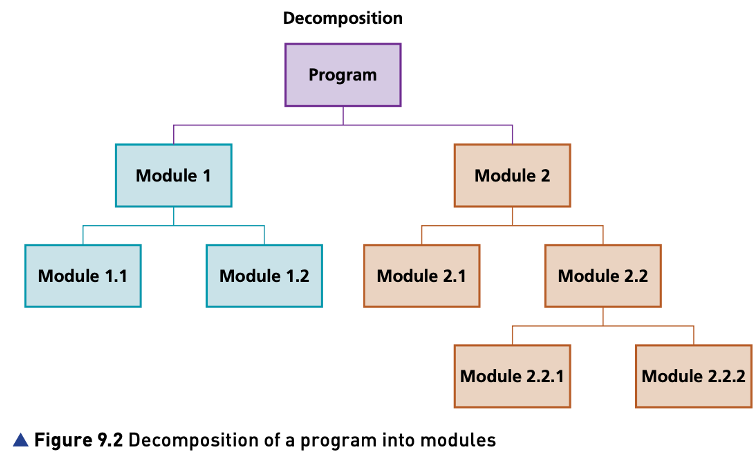Computational Thinking

Abstraction
- Abstraction is an essential part of computational thinking.
- It enables computer scientists to develop clear models for the solution to complex problems.
- Abstraction involves extracting information that is essential while ignoring what is not relevant for the provision of a solution, only including what is necessary to solve that problem.
- The benefits of eliminating any unnecessary characteristics from the model include
- the time required to develop the program is reduced so the program can be delivered to the customer more quickly
- the program is smaller in size so takes up less space in memory and download times are shortened
- customer satisfaction is greater as their requirements are met without any extraneous features.
Decomposition
Decomposition is also an essential part of computational thinking.
It enables computer scientists to break a complex problem into smaller parts that can be further subdivided into even smaller parts until each part is easy to examine and understand, and a solution can be developed for it.
Pattern recognition is used to identify those parts that are similar and could use the same solution.
This leads to the development of reusable program code in the form of subroutines, procedures and functions.

Abstraction
involves extracting information that is essential while ignoring what is not relevant for the provision of a solution, only including what is necessary to solve that problem
Abstraction
The benefits of abstraction include
Decomposition
enables computer scientists to break a complex problem into smaller parts that can be further subdivided into even smaller parts until each part is easy to examine and understand, and a solution can be developed for it.
Decomposition
is used to identify those parts that are similar and could use the same solution.